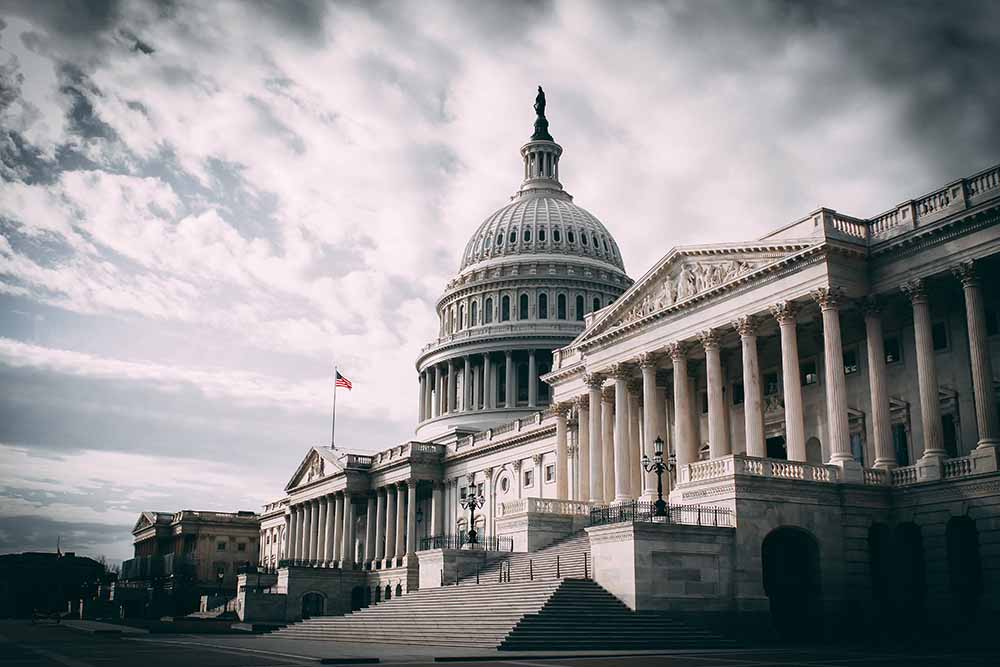The attack on the Capitol in Washington and its aftermath have taken a toll, but unfortunately, the incident will remain remote and extraordinary for most. It has been politicized, sensationalized and reconstructed, but its tragic impact on those on the front lines is undeniable.
Metropolitan Police Officer Kyle DeFreytag was found dead on July 10, 2021. Officer Gunther Hashida, assigned to the Emergency Response Team of the Special Operations Division, was found deceased in his residence on July 29. Metropolitan Police Officer Jeffrey Smith, a 12-year veteran of the force, and U.S. Capitol Police Officer Howard Liebengood, a 16-year Capitol Police veteran, also died by suicide. All four were on the front lines against the attack on the Capitol on January 6.
There are also the deaths of U.S. Capitol Police Officer William “Billy” Evans and Capitol Police Officer Brian D. Sicknick. Evans died of multiple blunt force injuries to the head, after being rammed by a car at the Capitol. He was attempting to protect the Capitol from an individual brandishing a knife after ramming his vehicle into a police barricade at the Capitol. Sicknick suffered two strokes and died a day after he confronted rioters on January 6, where he was sprayed with a powerful chemical irritant.
Policing is by no means an easy profession. Policing is fraught with physical dangers that most of us will never encounter. Physical injuries can be overcome—broken bones, torn ligaments, cuts, abrasions, stab wounds and even gunshot wounds heal. Then there are the psychological traumas that remain unseen, often latent for hours, days, months and even years before they seep or shock their way into one’s reality.
The trauma that victims experience after a break and enter, a random attack, a sexual assault or the death of a loved one can change the trajectory of their lives and leave deep suspicion, angst and trauma. This is the same trauma that officers encounter multiple times during their deployment. Theirs is a world fraught with a series of unending physical and psychological injuries that accumulate in layers upon layers with every passing deployment. This is not hyperbole; it is a fact. More than 1,008 law enforcement officers have died from suicide in the United States since 2016. The cost of the tragedy for spouses, children, families and friends is immeasurable.
Responding to the lesser instincts of humanity is something that law enforcement officers sign up to do; they knowingly take it on. Living with the criticism of being society’s invigilator, for the embarrassment of the failures of bad apples and for their own mistakes, is a reality that every law enforcement officer grows into. It’s an uncomfortable, stereotyped and marginalized position in many quarters of society; nonetheless, these men and women have a moral compass all their own that keeps them focused on the job, their vocation and their oath.
Those who give their lives in the line of duty, in the service of their oath, have done their job to the fullest, in unquestioning commitment to the communities to which they belong. They do so knowing that the memory of their commitment to purpose will be honoured, remembered by their colleagues, friends and families; despite each loss being a tragic indictment of a social failure.
The death of the officers following the Capitol attack is quite different—the incident is an anomaly—even for the twisted and unsavoury world to which law enforcement officers are accustomed. It’s one thing to give oneself physically and psychologically to the well-being of others who know that you serve a higher purpose; it is another to do so and be berated and betrayed by the very people who you believed entrusted you with their well-being, to whom you swore your oath, the institutions you represent and the symbols of patriotism and pride. These officers suffered a betrayal in silence, the judgment of too many political animals, and they were pained by the cost of it all on their own families and relationships. 
It is one thing to police a protest, even the most violent protest, when one is defending one’s Constitution, the rule of law. It’s another matter when one is asked to defend something for no purpose. Every senator, congressman and political appointee who denies the attack on the Capitol as an attack on everything America has been complicit in, severs the purpose, loyalty and sacrifice of every law enforcement officer—those who fought on the front lines on January 6 and those who are watching.
It is not in the scope of a police officer to quit, to whimper or to cower. It is not in the nature of a loyal soldier to fold when needed nor abandon their principles, nor think even once before placing oneself in harm’s way to protect the vulnerable. Each of the officers who gave their lives to the attacks stayed the course.
The four officers—Harry Dunn and Sgt. Aquilino Gonell of the U.S. Capitol Police and Michael Fanone and Daniel Hodges of the Washington, D.C., Metropolitan Police Department—who testified at the hearings on the Capitol assault did so with dignity, eloquence and candour that cannot be ignored.
The hearings into the attack are an opportunity to do much more than become just another political circus; they can honour the principles of an exemplary democratic society. The committee and every observer should also be guided by the weight of the law enforcement officers’ deaths and their sacrifices to the symptom of a far deeper tragedy in the fabric of the institutions and principles for which society enlists police officers.
Anil Anand is a research associate at the Frontier Centre for Public Policy.
Photo by Harold Mendoza on Unsplash.



